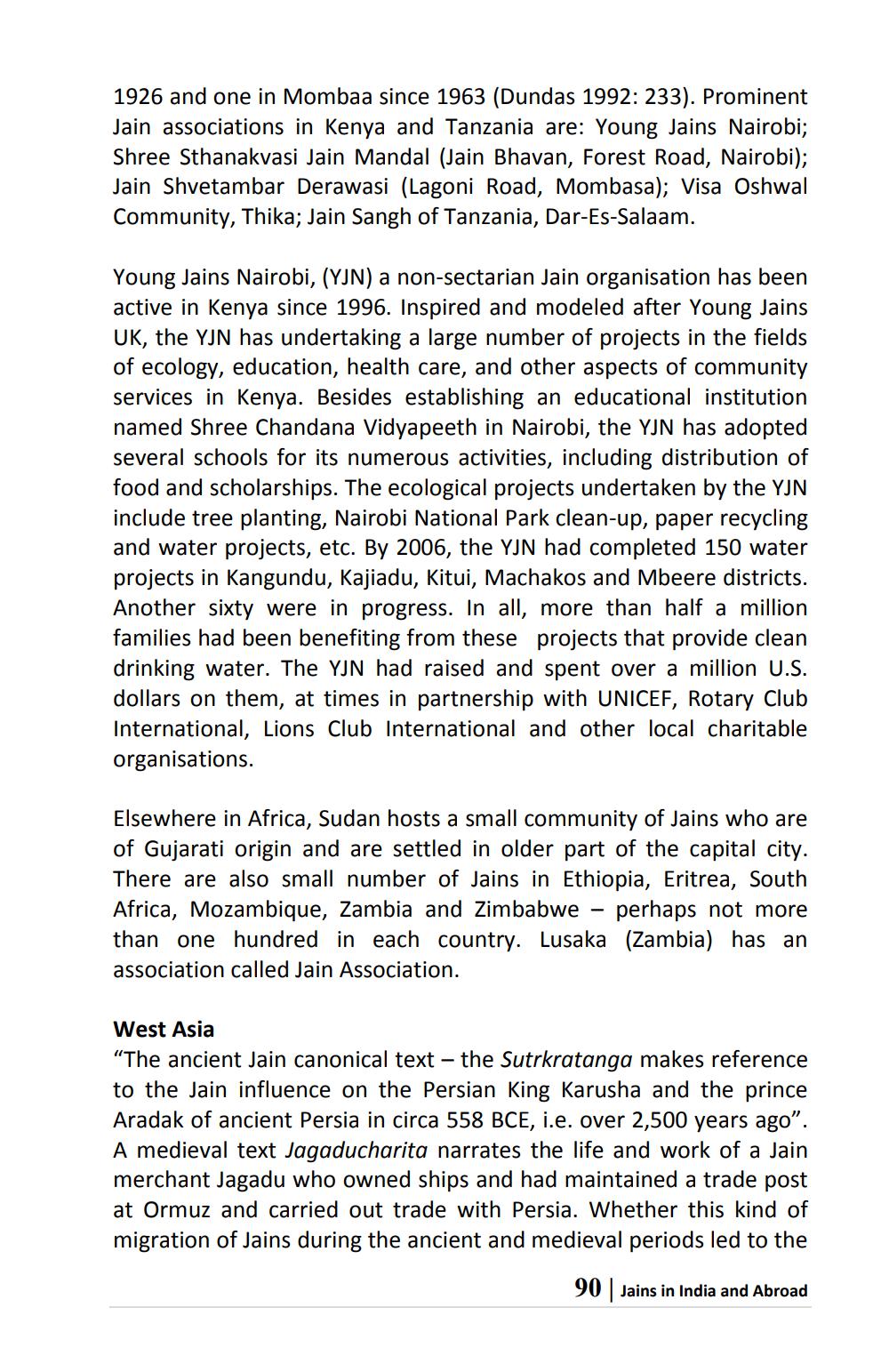________________
1926 and one in Mombaa since 1963 (Dundas 1992: 233). Prominent Jain associations in Kenya and Tanzania are: Young Jains Nairobi; Shree Sthanakvasi Jain Mandal (Jain Bhavan, Forest Road, Nairobi); Jain Shvetambar Derawasi (Lagoni Road, Mombasa); Visa Oshwal Community, Thika; Jain Sangh of Tanzania, Dar-Es-Salaam.
Young Jains Nairobi, (YJN) a non-sectarian Jain organisation has been active in Kenya since 1996. Inspired and modeled after Young Jains UK, the YJN has undertaking a large number of projects in the fields of ecology, education, health care, and other aspects of community services in Kenya. Besides establishing an educational institution named Shree Chandana Vidyapeeth in Nairobi, the YJN has adopted several schools for its numerous activities, including distribution of food and scholarships. The ecological projects undertaken by the YJN include tree planting, Nairobi National Park clean-up, paper recycling and water projects, etc. By 2006, the YJN had completed 150 water projects in Kangundu, Kajiadu, Kitui, Machakos and Mbeere districts. Another sixty were in progress. In all, more than half a million families had been benefiting from these projects that provide clean drinking water. The YJN had raised and spent over a million U.S. dollars on them, at times in partnership with UNICEF, Rotary Club International, Lions Club International and other local charitable organisations.
Elsewhere in Africa, Sudan hosts a small community of Jains who are of Gujarati origin and are settled in older part of the capital city. There are also small number of Jains in Ethiopia, Eritrea, South Africa, Mozambique, Zambia and Zimbabwe perhaps not more than one hundred in each country. Lusaka (Zambia) has an association called Jain Association.
West Asia
"The ancient Jain canonical text - the Sutrkratanga makes reference to the Jain influence on the Persian King Karusha and the prince Aradak of ancient Persia in circa 558 BCE, i.e. over 2,500 years ago". A medieval text Jagaducharita narrates the life and work of a Jain merchant Jagadu who owned ships and had maintained a trade post at Ormuz and carried out trade with Persia. Whether this kind of migration of Jains during the ancient and medieval periods led to the 90 Jains in India and Abroad




